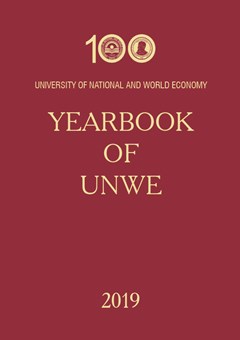The Language of Populism: Donald Trump and Nicolas Maduro
The Language of Populism: Donald Trump and Nicolas Maduro
Author(s): Daniela Koch-Kozhuharova, Kalina Ishpekova-BratanovaSubject(s): Politics / Political Sciences, Language and Literature Studies, Applied Linguistics, Political Theory, Sociolinguistics, Politics and communication
Published by: Университет за национално и световно стопанство (УНСС)
Keywords: critical discourse analysis; populism; social media; framing
Summary/Abstract: The paper carries out a comparative analysis of the populist rhetoric and style of US populism and Venezuelan populism with the major aim to possibly identify commonalities and differences. Thus it has set the goal to outline the specific features of populism as a language and the possible theoretical and methodological framework within which it can be examined. The empirical material that has been subject to analysis comprises US President Trump’s tweets on Venezuela and Venezuelan President Maduro’s TV statements on the United in the period January –March 2019, at the height of Venezuela’s humanitarian crisis. The findings suggest that, despite the divergence in terms of political culture and ideological assumptions, the two populist leaders show strong similarities with regard to linguistic devices and discursive strategies. They are both involved in an anti-establishment discourse, where the status quo is rendered as a crisis situation that certainly needs immediate rectification and emergency measures. Such ideas are suggested through the use of coarse language and straightforward and vulgar vocabulary. The populist leader is presumably the mouthpiece of the moral and sovereign people and reportedly tends to speak the truth, which is suggested through the recurrent use of the modal verbs and rare use of any hedging devices. Their insistence on their version of the truth is fortified by the use of highly modal verbs such as shall and will. Furthermore, neither transitivity nor nominalizations are used. Instead the two world leaders make unequivocal assumptions about one another as the root of evil in a democratic world.
Journal: Годишник на УНСС
- Issue Year: 2019
- Issue No: 1
- Page Range: 99-122
- Page Count: 24
- Language: English

